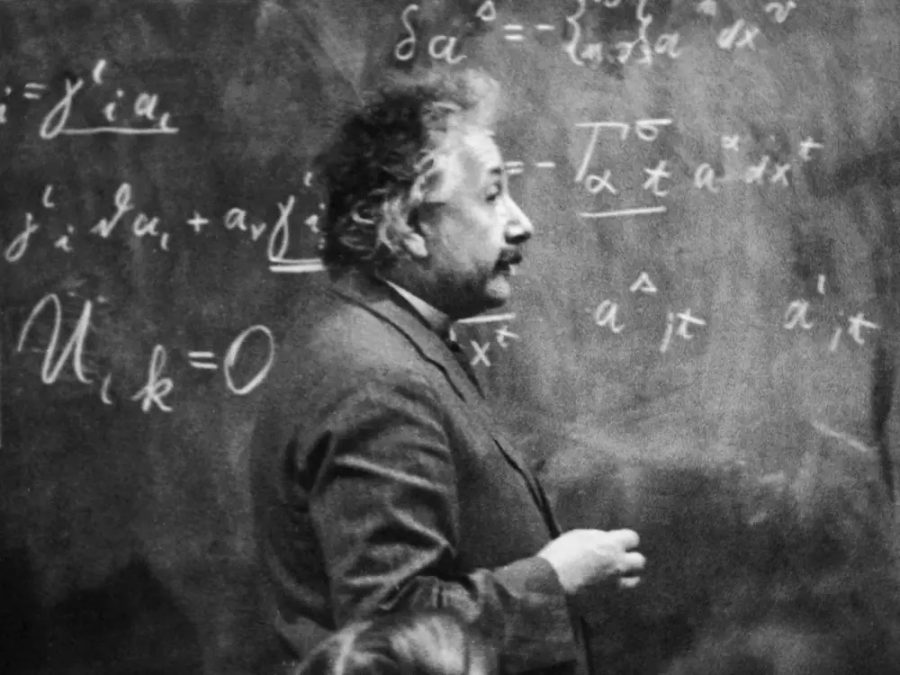Theoretical Physics: Why It’s Dying
Although theoretical physics remains theoretical, its impacts in our world are very real
October 18, 2022
If someone were to ask you at this very second to name a famous scientist, who would pop into your mind? Common and widely accepted responses would mention Albert Einstein, Stephen Hawking, or Issac Newton. There is a relationship hidden within these names, a sort of underlying framework that connects these three. Can you guess what it is? All are theoretical physicists and mathematicians: a rare breed of transcendent geniuses. Throughout the centuries, theoretical physics has been the underlying backbone for societal advances. It is also the entire framework for our interpretation of the universe, meaning we wouldn’t be where we are today if it hadn’t been for the cosmological clarity that consumes this field. Recently, however, there has been major neglect of these studies, cutting funding to pursue more practical topics. We will regret this in years to come.
To the untrained eye, it seems quite obvious why investors are turning away from this field. For one, theoretical physics is, well, theoretical. It’s not something you can touch or feel and, to many investors, the math behind it looks like alien hieroglyphics. Not only that, physicists often dedicate their entire lives to the cultivation and comprehension of these theories—deterring anyone with hopes to “get rich quick.” Perfecting these complex ideas can take decades, and most are simply unwilling to wait.
Understanding these disappointing facts makes it rather simple to see why funding has decreased as much as it has. In fact, according to the American Physics Society, investments in the fields of physical science had dropped 50% over a thirty year period prior to 2005. The result: people of immense intellect and burning passions turn away from the jobs they love so that they don’t starve, leading to a worldwide drop in completed physical science degrees. Imagine a student filled with promise for humanity, deciding what they ought to study in the future, well aware of their love of physics. With a quick internet search, they find that their dreams might ultimately leave them broke and jobless, so they choose a safer career. The world just lost its next Einstein.
However, it is more than true that this research, when properly funded, has yielded some of humanity’s greatest works. Take Einstein, the world’s best-known physicist. His most popular theories on Special and General relativity are completely revolutionary ideas that have a grip on the diverse technologies we all utilize. Every day, we actively rely on GPS systems and satellite information, which could not be utilized had it not been for Einstein’s theories. Another major example, of course, is that of calculus. Today, there are considered to be two fathers of calculus, one being Sir Issac Newton: a man considered to be the first-ever theoretical physicist. Quantum mechanics, the most bustling and promising field yet—and the closest humans have ever gotten to discerning the universe—can only be understood by the laws and principles cultivated by, you guessed it, theoretical physics!
As investors continuously turn away and cut funding from the abstract ideas and undecipherable mathematics that is harnessed in theoretical physics, averting the most passionate minds in the process, we are certain to lose the next father of modern science and halt our intellectual expansion, chaining us down to Earth instead of probing the stars. Now that the legendary 20th-century group of physicists is passing one by one, we are left to question whether the field itself might survive at all, which is immensely unsettling considering its larger-than-life implications for the world. It seems that this breed of human might simply go extinct.
What once seemed like a bubbling field, constantly ready to explode at the next burst of curiosity, might just shrivel up as it dies in our trembling hands. The only hope for the realm of science is if humans begin to neglect the superficial subjects of society and rekindle that natural human curiosity towards probing the cosmos, if not for today’s generation, then for tomorrow’s. We simply cannot afford to abandon one of the greatest cultivated fields in human history.
